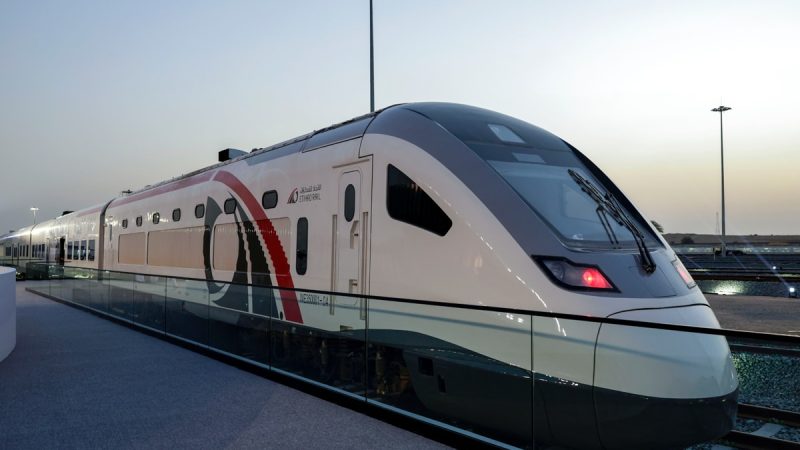
Train Service Chief Predicts Major Impact On UAE Road Traffic Amid Etihad Rail Revolution
Seems like everyone is keeping an eye at the progress of Etihad Rail.
The 1,200km network will extend across the UAE, from the border of Saudi Arabia to the border of Oman.
It will stretch from Al Sila to Fujairah including Al Ruwais, Al Mirfa, Dubai, Sharjah, Al Dhaid and Abu Dhabi. The network will also connect Sohar in Oman to Abu Dhabi in the UAE, via Sohar Port to the UAE National Rail Network.
While the passenger train service remains a work in progress, it will connect 11 cities and regions in the country. Currently, the train line is only operational for freight – but that doesn’t mean we can’t feel the impact of its arrival.
And Etihad Rail Freight’s CEO agrees, arguing that roads in the UAE will be safer and less busy as a huge number of lorries are taken off them while freight is delivered by rail rather than car.
Speaking at the Middle East Rail Conference this week, Gottfried Eymer said the railway line’s freight service will shift heavy goods vehicles (HGVs) from roads to the railway – resulting in reduced travel times for motorists.
He told The National: “The benefit for people will be very good and positive.
“Instead of 300 lorries, you have one train driver. Instead of people waiting in traffic jams, we are moving lorries to railway.”
The hope is that Etihad Rail will reduce the number of people who commute by car between the Emirates by 30 to 40 percent.
Trains are estimated to take 1 hour 40 minutes to move between Abu Dhabi and Sohar, and just 47 minutes to travel from Al Ain to Sohar.
@2022 Hostpot In Dubai. All Right Reserved
